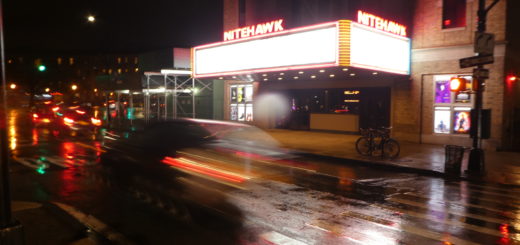Guilt and Betrayal
I have been assured that I should feel no guilt over my brother’s death.
It’s not rational. But then, the whole point of emotions is that they aren’t rational. And survivor’s guilt is nothing but an irrational emotion. There, by naming it I have surely laid that ghost. There is power in names.
I wrote about his death on my blog. It was my idea to split up that day and explore separately. My idea that Jeremy should be alone without me to temper his wild enthusiasm. My idea to shirk my responsibility to my only brother, and I have ever since had to live with the consequences.
I didn’t go through grieving alone. Without my mother though, she dodged the bullet of having to take care of her remaining children by having another nervous breakdown. She was somewhat in the habit of being hospitalized, meeting new friends in the mental ward. But this was the longest of them all, and my step-father was not up to the task of running his hairdressing business and taking care of us children. We ate out in restaurants a lot.
My sister Helen was four years old. At seven I had no idea how to comfort her, nor she me.
Mum freely admitted to friends that she was dependent on my step-father Jim to tell her when she was ill and needed to see her psychiatrist. And he was dependent on her, or rather, on her father. The house, in her name, was paid for by granddad, and all household bills were sent directly to him. The only expense that Jim had was buying food. The rest of his income presumably disappeared in the direction of his girlfriends.
When mum came out of hospital she decided to take the two of us shopping for new clothes. We knew the routine, first we would stop at the bank, and withdraw money from the accounts that granddad had set up for us. Then we would go shopping on the high street. Instead she was shocked to learn, in front of us, that Jim had withdrawn all the money.
But I always had Jim. Before, Jeremy and I had always stood together against his bullying, but now without Jeremy, and with mum sick even when she was released from the hospital, I was defenseless. Every possible thing that I did or didn’t do, every word I spoke or left unsaid, all were subject to a barrage of criticism and hostility. My social support network was my torturer,
I would choose the solitary confinement of my room and a book over any contact. In books I could find diversion from the ever-present absence of Jeremy. From my own part in his loss. From the mother who couldn’t care for herself; from Helen who was Jim’s natural daughter and always in his favour; from Jim.
I made few friends at school. In part I think I was afraid of any attachments, but also I got into fights easily. My fight-or-flight mechanism was always fully on, and I took any rough and tumble as a deadly struggle. Fortunately I was much smaller than the other boys, and could generally be held off with an outstretched arm.
I would lie awake in my room until well after my parents were asleep. It’s hard for me to relate personally to how they saw my insomnia as a disciplinary problem. It left me by the time I was thirteen, though the mood swings and loss of drive stayed with me. The crippling headaches had some basis in my poor eyesight, but they too subsided over the years.
The memory of my parents telling the babysitter that we boys could roam free unsupervised intruded less and less as the years piled on, but the anger at Jim was a continuing sore. I had a vision of other kids having “normal” families and a promising future, mine was sick, and my vision for the future was that I would escape.
But the black feeling invades me still. If I had not suggested that we split up, he would not have been alone by the pool. They found a bottle of water beside the pool, and theorized that he had filled it, only to lose his balance.
We named our first son Jeremy, in his memory. Once I became a parent, my bill of indictment became more particularized. I certainly never let my sons wander around a pool unsupervised when they were six. No games playing chicken with trucks on the highway for them.
Separated by the Atlantic Ocean, having mum babysit the kids was never a consideration. But when it came time for my sister to have children, one time she offhandedly mentioned the convenience of having a grandma to take over for an evening out. I freaked. It took the rest of that phone call for my sister to calm me down, explain that she had lived with mum for much longer and more recently than I had, and did not think that she was a danger to children. With a leaden heart, I let the issue go. Her children, her responsibility, I had had my say.

